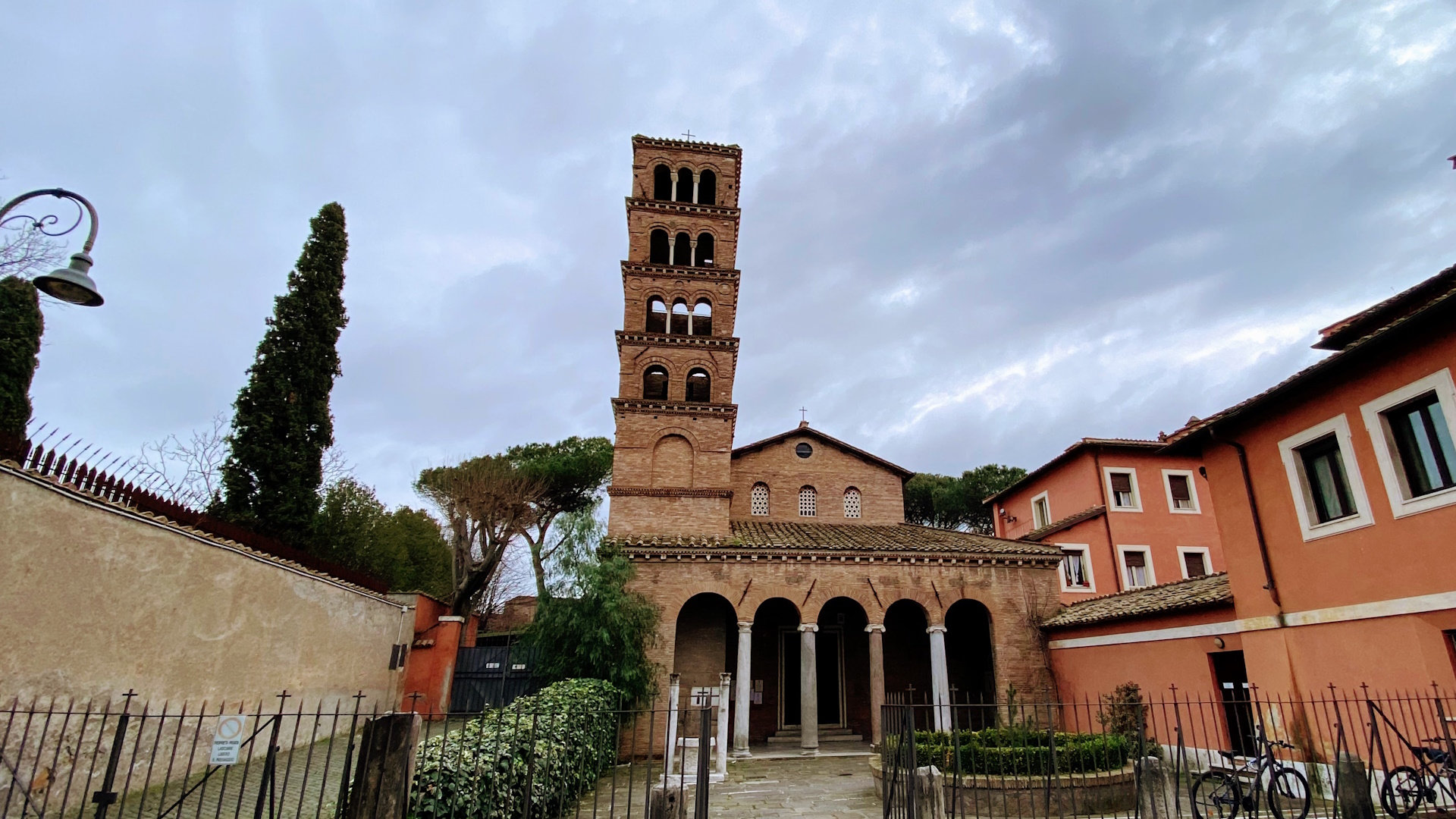
With its quiet and attractive churchyard, shaded by a large cedar, San Giovanni a Porta Latina was probably founded in the 5th century: the date is consistent with some roof tiles bearing the tax stamp of the Gothic king Theodoric. The church was rebuilt at the end of the 8th century and underwent a restoration in 1191. It is named after St John the Evangelist: according to a very ancient tradition, the saint was sent to Rome for trial and put into a cauldron of boiling oil from where he emerged unhurt: the miraculous event was said to have occurred at the Latin Gate and is pictured in the frescoes of the adjacent chapel of San Giovanni in Oleo.
The façade is preceded by an entrance loggia with five narrow arches. Inside the loggia on the right is the original stone finial of San Giovanni in Oleo. On the left hand side stands the splendid 12th century Romanesque bell tower, with five orders, adorned with elegant triple arcades having marble columns and imposts on the last three floors. Medieval frescoes covered the loggia and part of the façade but only a few traces of them survive. In the courtyard there is a well from the 9th century, flanked by two small ancient marble Corinthinan dating back to the 4th century: in the Latin inscription around its rim it’s possible to read the baptismal formula and the name of the stone carver: “EGO STEFANUS”, “I Stephen”. The interior of the Basilica is divided into three naves, with two rows of five columns of different marble on which rest semi-circular arches. The cycle of 12th century frescoes decorating the central nave, found during the 1940 restoration, represents 46 different scenes from the Old and New Testaments. Together with the decorations in the Gothic hall of the Santi Quattro Coronati complex, the frescoes represent one of the most interesting examples of medieval painting in Rome, prior to Pietro Cavallini and the Roman school of the late thirteenth century.
Information
Timetable of Holy Masses
Mondays: 06.30Tuesdays: 06.30Wednesdays: 06.30Thursdays: 06.30Fridays: 06.30Saturdays and feast days: 07.00Sundays and feast days of obligation: 10.00, 11.30
Wedding celebrationsat 11.00, 15.30, 18.00
Times may be subject to change, so it is always advisable to contact the Basilica
 Condividi
Condividi
Location
To find out about all accessibility services, visit the Rome accessible section.












































